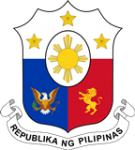Notarial Services2
notarial services The Consulate, through its Consular Officers, can notarize documents signed by individuals that will be used or presented in the Philippines. The notarized document will have a covering page (“ACKNOWLEDGMENT”) with an eyelet and a gold seal. Personal appearance of the signatory or signatories is a requirement for consular notarization. Appointment is required for this service. Click here to book an appointment. Examples of documents that may be notarized at the Philippine Consulate are as follows: Affidavits Special Powers of Attorney General Powers of Attorney Certifications Contracts to Sell Deeds of Donation Deeds of Absolute Sale Bank Forms / Signature Cards Insurance Forms NBI Clearance Applications GSIS / SSS Forms Extra-Judicial Settlements J1 Visa Waivers List Items Au Pair Agreements Beginning 15 May 2019, the Consulate will no longer authenticate the signatures of public documents notarized by any US notary public or signed/issued/certified by a Federal, State, County, City, university or school official. To use these types of documents in the Philippines, these will only require an Apostille Certificate issued by competent U.S. authorities. Click here for information on how to obtain an Apostille Certificate. STEPS Set up an appointment Appointment is required for this service. To set…

